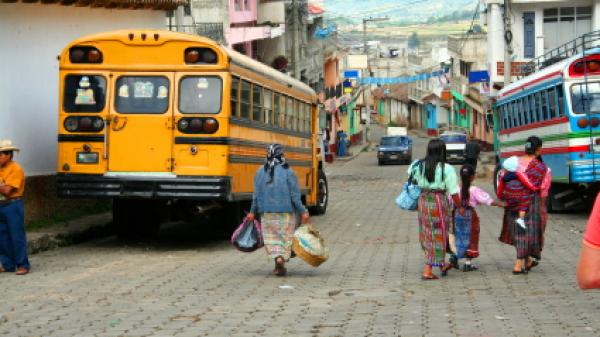Guatemala Cancels Daylight Saving for Safety Fear
The Guatemalan government is scrapping its plan to adopt daylight saving time in 2008 after President Álvaro Colom recently announced that the energy-saving measure was a threat to safety.

Guatemala Cancels Daylight Saving for Safety Fear
©iStockphoto.com/Leeuwtje
Safety Comes First
The government originally planned to implement daylight saving time to alleviate its energy problems. However, the risk of escalated violence outweighed the benefits of saving energy as a result of daylight saving time.
The president said people who went early to work or an educational institution would be leaving their homes in the dark, the time when crime was at its highest, putting them in potentially dangerous situations. “In line with a recommendation from the Security Cabinet we decided not to move ahead one hour,” he said at a recent news conference.
Earlier Proposal Scrapped
The Guatemalan Government originally proposed to advance the clock by one hour from April 27 to September 27, 2008, in a bid to address its energy problems. The national government initiated the proposal in a bid to save energy and oil shortly after newly elected President Álvaro Colom took office in January 2008.
The government also invited other neighboring countries to join in the energy-saving plan by observing daylight saving time. These countries included: Honduras, El Salvador, Nicaragua, Costa Rica and Panama. The proposal aimed to ensure that there would be a standardized timetable in the Central American region that would take into account daylight saving time. So far, countries such as Honduras, Nicaragua and Costa Rica have no plans of observing daylight saving time in 2008.
Energy-Saving Measure
Prior to dropping its daylight saving plans, the Guatemalan government considered adopting daylight saving time as a more permanent measure in the future so that energy savings would be significant in the long-term. The government also campaigned nationwide to save energy and encouraged public support for the plan. Guatemala has used daylight saving time to address its energy problems in the past but not in each consecutive year. Daylight saving time was observed in 2006 but it was not observed in 2007.
Much of the country’s power generation is through crude oil. Guatemala's energy problems are related to poverty and the repercussions of the previous civil war. The civil war ended in 1996 but posed a constant problem for oil companies as guerillas were most active in the northern areas of the country. Guatemala still faces poverty with regard to the provision of basic nutrition, health care and education across the country.
Dates of Daylight Saving Time 1980–2006
These are the dates Daylight Saving Time started and ended in Guatemala since 1980.| Year | Start date | End date | Daylight duration |
|---|---|---|---|
| 1973–1974 | Sunday, November 25, 1973 | Sunday, February 24, 1974 | 13 weeks |
| 1983 | May 21 | Sep 22 | 17 weeks and 5 days |
| 1991 | Mar 23 | Sep 7 | 24 weeks |
| 2006 | Apr 30 | Oct 1 | 22 weeks |